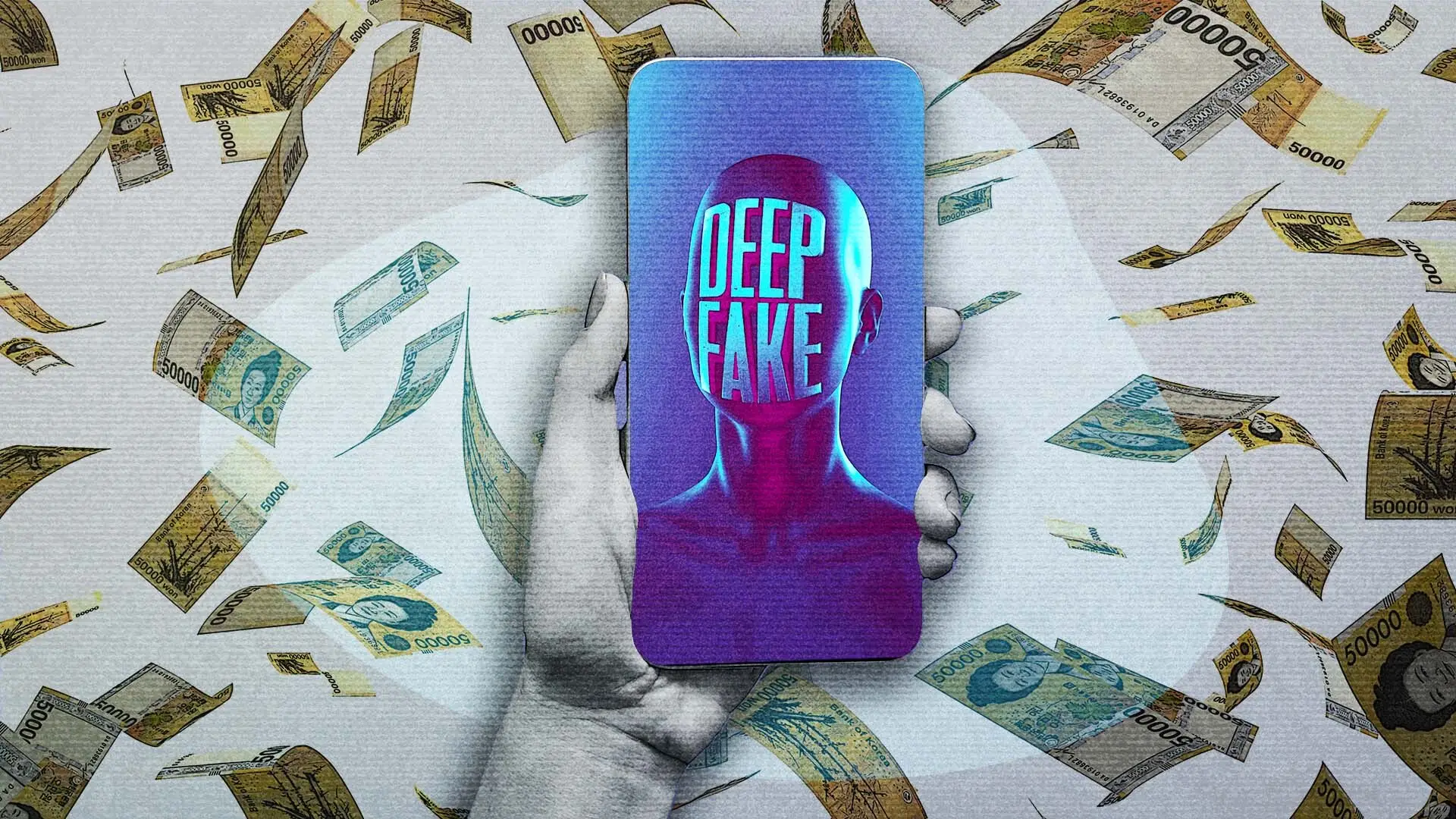Scammers are using deepfake videos—artificial intelligence-altered clips that make people appear to say or do things they did not—to impersonate South Korean celebrities, misleading individuals into fraudulent investment schemes.
The Korea Communications Standards Commission announced on April 9 that financial fraud involving deepfake technology is on the rise across the country. The government agency is actively developing countermeasures to combat these crimes, focusing on enhanced detection methods and stricter regulations to prevent further exploitation.
The latest investment scams of this type involve fraudsters using deepfake technology to impersonate celebrities or investment experts. They distribute advertisements promising high returns on social networking platforms like Facebook, Instagram, and YouTube. The targeted victims are then directed to messaging applications, where they are further lured into fraudulent investment schemes.
Deepfake-based investment scams first emerged earlier this year on Facebook, employing videos that manipulated the faces and voices of South Korean actors to disseminate fraudulent information.
On April 3, the Gyeonggi Nambu Police Agency arrested a group involved in an investment scam that impersonated celebrities. Operating from overseas offices, the criminals defrauded 85 victims out of approximately $13.34 million (18.6 billion won). The police disclosed that the group also posed as renowned investment experts, enticing victims with offers of free lectures promising high profits.
On March 22, victims of impersonation, including comedians, YouTubers, lawyers, and company executives, held a press conference to call for measures to prevent such scams. They reported individual losses exceeding $2.15 million (3 billion won) per person due to these scams. Additionally, 137 celebrity victims signed a petition urging the government to act to prevent further such abuses of the public trust.
In a separate investigation, the Korean National Police Agency looked into investment scams spreading through social media from September 25 of last year to March 24 of this year. According to information obtained by The Readable, authorities uncovered 3,425 incidents of illegal activities, including celebrity impersonation, during this timeframe. The total damages from these scams amounted to approximately $294.4 million (410.4 billion won), as reported by the police.
Earlier this month, Google announced it would suspend advertiser accounts found to be soliciting personal information or money through impersonation ads on its website and YouTube.
Likewise, South Korean tech giants Naver and Kakao have also tightened regulations on impersonation advertisements. Kakao has launched a webpage where users can report impersonation scams originating from chat rooms. Meanwhile, Naver has announced plans to implement a reporting system for scam victims.


